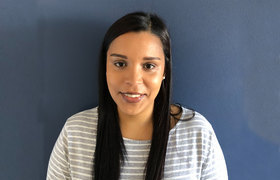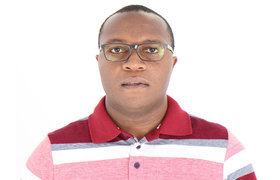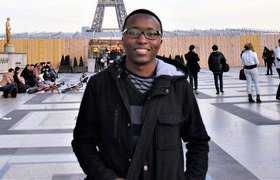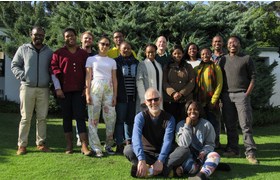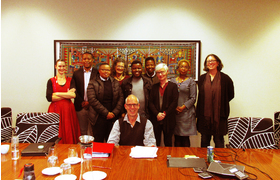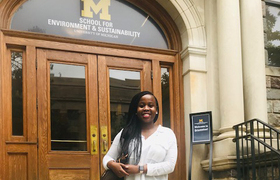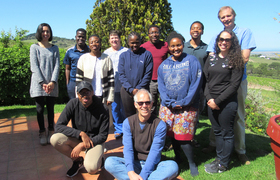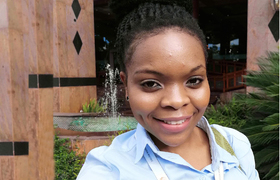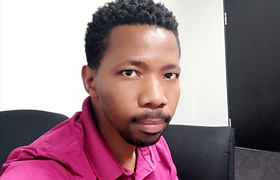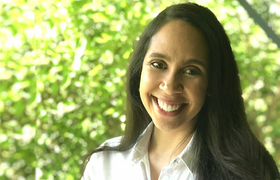UCT in M&G’s top 200
14 July 2017 | Story Chido Mbambe. Photos Supplied.
Close on 30 of the exceptional young people featured on the 2017 Mail & Guardian 200 Young South Africans list are UCT students, alumni and staff members.
The list features notable South Africans under the age of 35 who have made a mark for themselves in categories ranging from business and entrepreneurship to the environment, arts and entertainment.
The following UCT students, alumni and staff feature on the 2017 list:

PhD candidate Lerato Hlaka, from the Department of Pathology’s Division of Immunology, embarked on her UCT studies with support from the National Research Foundation and the South African Medical Research Council. She is also affiliated with South African Women in Science and the Golden Key International Honour Society.

Kelly-Jo Bluen, who holds a BA(Hons) in international relations from UCT and is currently a legal researcher at the Institute for Justice and Reconciliation, focuses on international relations and international justice.

Senior attorney Rorisang Mzozoyana is a specialist property finance lawyer with more than 10 years’ legal experience. A fellow of the prestigious South African Visiting Lawyer Programme, facilitated by the Cyrus R Vance Centre for International Justice, she is currently pursuing an MSc in property studies at UCT.

Dr Banothile Makhubela is currently a senior chemistry lecturer at the University of Johannesburg. Dr Makhubela holds a PhD from UCT. She has received numerous awards, both locally and internationally. Her research is currently focused on synthetic organometallic chemistry with applications in manufacturing second- and third-generation biofuels.

Lecturer in Integrative Biomedical Science Dr Hlumani Ndlovu does research on diseases that impact South Africans and Africans as a way to solve some of society’s most pressing problems. He completed his PhD in immunology at UCT, completed the UCT Emerging Student Leaders Programme, and was also one of the 100 Brightest Young Minds in 2013.

Dr Kavita Lakha is a forensic anthropologist who recently completed a PhD in human biology at UCT. She works at the Missing Persons Task Team in the National Prosecuting Authority, where she conducts forensic investigations in search of activists who disappeared in political circumstances between 1960 and 1994.

Dr Sudesh Sivarasu, the founder of the UCT Medical Devices Lab, is a senior lecturer in biomedical engineering in the Faculty of Health Sciences. He has a PhD in biomedical engineering and won the TW Kambule–NSTF Award for an emerging researcher in 2016, among other awards.

Marvin Jansen is a health science education lecturer at UCT. As a paramedic student, he was uncomfortable with practicing on “real-life” patients and so decided to focus his research on medical simulation. His master’s in emergency medicine is now being followed by a PhD in health science education.

Political studies lecturer Xichavo Alecia Ndlovu is completing a PhD in international relations, focusing on the effects of political institutions and party systems on the inclusiveness and sustainability of development in resource-rich African countries, specifically Ghana, Mozambique, Namibia and Zambia.

Sydelle Willow Smith, photographer and video editor, co-founded the NGO Sunshine Cinema, a solar-powered mobile advocacy platform, and is a partner in Makhulu Media. She aims to build a media advocacy platform in Africa through Sunshine Cinema, which will create necessary dialogues across current economic, generational and prejudicial lines.

Mike Mulcahy is the chief executive of GreenCape, a sector development agency established in 2010 to support the accelerated development of the green economy in the Western Cape. A BBusSc graduate, he studied for his master’s in development finance at the UCT Graduate School of Business.

Water source areas programme manager at the World Wildlife Fund Samir Randera-Rees is a conservationist and TV personality. He completed his BSc in environmental science and economics at UCT. His long-term goal is to be a leader in the conservation sector and use his skills and influence to achieve sustainable, positive change.

Dr Coenie Hattingh is a consultant clinical neuroanatomist and lecturer at UCT where he teaches clinical neuroanatomy, neuropathology and neuroimaging across several academic departments. Hattingh is currently completing his second master’s degree, specialising in neuropsychology with a focus in neuropsychodiagnosis and neuropsychoanalytic rehabilitation.

Founder of the Injabulo anti-bullying project Lindiwe Dhlamini holds a BSocSc and is currently completing her honours degree in gender and transformation studies at UCT. Dlamini was actively involved in various mass mobilisation efforts for campaigns such as #FeesMustFall and #EndOutsourcing.

Wanelisa Xaba, feminist activist and decolonial writer, is currently pursuing a master’s in social development at UCT. Xaba has been involved in a number of social justice, children and youth development initiatives. Her work has seen her engaging policymakers from the Department of Social Development regarding interventions for orphaned and vulnerable children.

Sibu Mpanza was an avid watcher of YouTube videos while he was studying at UCT. He was in his second year when he borrowed a camera to shoot some footage. Today he has over 250 000 hits on his YouTube channel and companies are now paying him to promote their brands.

Dr Eugene Lee Davids, from the Department of Psychiatry and Mental Health, is a postdoctoral research fellow in the Adolescent Health Research Unit (AHRU) in the Division of Child and Adolescent Psychiatry. He holds a master’s and a doctoral degree in child and family studies from the University of the Western Cape. His research interest is in parenting style, particularly the impact of parenting style on young people’s decision-making about health.

PhD candidate Dr Matthew Amoni was one of the first medical students at UCT to enrol into the MBChB/BSc honours intercalated programme where he completed his MBChB studies concurrently with BSc(Med)(Hons) and MSc studies. Amoni was awarded distinctions for both degrees. He is currently working on his PhD in Belgium and dreams of creating an African textbook of medicine.

Lecturer in the Department of Commercial Law Silindile Buthelezi is an emerging academic expert in the field of banking and finance law in South Africa. Buthelezi was selected for the 2017 Mandela Washington Fellowship programme and recently completed her second LLM, in international banking and finance law, at University College London. She will be graduating with a merit in July.

Dr Sarah Fawcett, ocean biogeochemist from the Department of Oceanography, was the principal investigator of the only African-led project that has been selected to participate in the Antarctic Circumnavigation Expedition, which drew scientists from around the world. The aim was to see first-hand, through a broad range of scientific disciplines, what impact climate change is having on the Southern Ocean.

Musician Benjamin Jephta was the winner of the 2017 Standard Bank Young Artist Award for Jazz. Jephta has brought fresh life to the double bass and the electric bass, which he has played in public since he was 15 years old. He graduated from UCT in 2014 and moved to Johannesburg to pursue his music career.

Kentse Mpolokeng is the first black female lecturer in the Department of Human Biology in the Faculty of Health Sciences at UCT. Mpolokeng took up the New Generation of Academics Programme (nGAP) lectureship at UCT at the beginning of 2016, and is on the fast track to becoming one of South Africa’s leading academics. She will be graduating cum laude for her master’s in medical science in July.

Lethabo Motswaledi, chief executive at 3D Power, completed a bachelor’s and master’s degree in geomatics at UCT in 2015 as a Mandela Rhodes Scholar. 3D Power is a product development start-up that uses three-dimensional printing to translate innovative ideas into commercial products.

The national head of mentorship at the Association of South African Black Actuarial Professionals, Malizole Mdlekeza, spends his time helping other young black South Africans break into the actuarial science profession. He holds a BSc in statistics and a postgraduate diploma in actuarial science from UCT.

Mphumeleli Ndlangisa is a mathematical statistician who completed his undergraduate studies at UCT. The self-taught wine maker left a high-paying job to start producing wines. He is now the owner of Magna Carta Wines in Stellenbosch.

Veli Ngubane has managed to build the largest majority black-owned marketing agency in South Africa. Ngubane is the co-founder and chief creative officer at AVATAR Agency. He graduated with a BSocSc in politics, economics and law from UCT.

Alan Wallis, who has played an active role in South African civil society for a number of years, holds an LLB from UCT. He is currently the manager of the information, expression and accountability programme at the Open Society Foundation.

Andrew Einhorn, the managing director at Numeric, came back to South Africa in 2007 to pursue a master’s degree at UCT after having studied physics and mathematics at Harvard University. Numeric is an after-school maths programme for children in their final year of primary school.

Pap Culture is an entertainment platform created by YouTubers Thembe Mahlaba (UCT), Nwabisa Mda (UCT) and Bongeka Masango. The collective aims to create content that resonates with young South Africans. Mahlaba holds a BA in film studies and drama, and a BA (Hons) in directing. Mda holds a BSocSci in media, writing and sociology and a postgraduate diploma in marketing management.
Vere Shaba, a green engineer and founder of Shaba & Ramplin Green Building Solutions, holds a BScEng (Hons) mechanical engineering degree from UCT. Her special area of focus is addressing the energy trilemma – energy security, energy equity and environmental sustainability. Shaba is a Green Star SA Accredited Professional with the Green Building Council South Africa.
If we have left anyone out, please let us know.
 This work is licensed under a Creative Commons Attribution-NoDerivatives 4.0 International License.
This work is licensed under a Creative Commons Attribution-NoDerivatives 4.0 International License.
Please view the republishing articles page for more information.
New Generation of Academics Programme (nGAP)
UCT has responded energetically to the New Generation of Academics Programme (nGAP), an opportunity provided by the Department of Higher Education (DHET) to build a new generation of black South African academics. The DHET’s 2015 vision document, “Staffing South Africa’s Universities Framework: A comprehensive, transformative approach to developing future generations of academics and building staff capacity”, proposes a suite of initiatives to address the challenge, with nGAP being the major instrument to increase the numbers of black South African academics.
The programme “involves the recruitment of highly capable scholars as new academics, against carefully designed and balanced equity considerations and in light of the disciplinary areas of greatest need”. The nGAP scholars are appointed into permanent positions where from the outset their conditions are customised to ensure their successful induction into the ranks of established academics.
The DHET provides funding over a six-year period to support the appointment of an nGAP lecturer, and their time is protected to provide the best possible opportunity for the completion of a doctorate degree in the shortest possible time. Once the degree is completed, the nGAP lecturer’s teaching commitments are steadily increased until they shoulder a full teaching load.
Since the first advertisement for nGAP posts in 2015, UCT has been awarded 17 nGAP positions: 5 (Phase 1), 4 (Phase 2), 3 (Phase 3) and 5 (Phase 4). These are distributed across all faculties.
UCT’s nGAP scholars operate as a single cohort, managed and coordinated by Dr Robert Morrell. Lecturers meet for quarterly meetings, writing retreats and various capacity-building activities all designed to support the completion of postgraduate qualifications (particularly doctorates) and to develop records of achievement that will testify to their emergence as self-standing, excellent academics. Each lecturer is mentored by a senior scholar, who provides support and guidance on the challenges that routinely face academics.
The nGAP manager sets great store in building the cohesion of the cohort and encouraging the establishment of new UCT networks while producing a collaborative, mutually supportive and embracing work culture.
According to Dr Morrell, “This group of academics will lead UCT in 15 to 20 years’ time ... Their vision of excellence, of being African and South African, of serving a wider community and producing knowledge for the planet, the continent and the country, will power UCT in years to come.”
Newsletters
In the news
